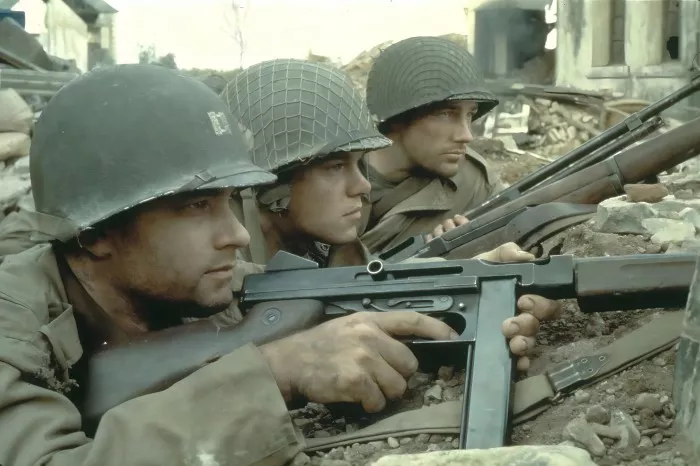The Moral Dilemma of Captain Miller: An Analysis of His Decision to Spare the German Soldier in “Saving Private Ryan”
In Steven Spielberg’s epic war film “Saving Private Ryan,” the character of Captain John Miller, portrayed by Tom Hanks, finds himself facing a profound moral dilemma when he encounters a young German soldier during the mission to locate Private James Ryan. As the climax of the film unfolds, Captain Miller and his squad engage in a tense standoff with the enemy soldier, leading to a moment of decision that reverberates with ethical complexity and existential weight. In this analysis, we will delve into the factors that influence Captain Miller’s decision to spare the German soldier and explore the deeper implications of his choice within the context of the film’s themes of duty, compassion, and the human cost of war.
The Context of Conflict
Before delving into Captain Miller’s decision, it is essential to understand the context in which it occurs. The film is set against the backdrop of World War II, a conflict characterized by its moral ambiguity and devastating consequences. As Captain Miller and his squad navigate the treacherous terrain of war-torn France, they are confronted with the brutal realities of combat and the fragility of human life. Against this backdrop of chaos and carnage, the encounter with the German soldier becomes a microcosm of the broader ethical dilemmas faced by soldiers on both sides of the conflict.
The Humanity of the Enemy
One of the key factors influencing Captain Miller’s decision is his recognition of the humanity of the enemy soldier. Throughout the film, Spielberg depicts the soldiers on both sides of the conflict as individuals with hopes, fears, and dreams. By humanizing the enemy, Spielberg challenges the simplistic dichotomy of “us versus them” and invites viewers to empathize with characters regardless of their nationality or allegiance. This humanization is exemplified in the scene preceding the encounter, where Captain Miller listens to the dying words of a German soldier, prompting him to reflect on the shared humanity of all those caught up in the brutality of war.
The Weight of Responsibility
Another factor weighing heavily on Captain Miller’s mind is his sense of responsibility for the lives of his men. As their leader, he grapples with the burden of command and the moral obligation to protect his soldiers while also fulfilling the objectives of their mission. Throughout the film, Captain Miller demonstrates a deep commitment to his men, risking his own life to ensure their safety and well-being. This sense of duty clashes with the impulse for violence and retribution, complicating his decision-making process and heightening the tension of the scene.
The Ripple Effects of Violence
Furthermore, Captain Miller’s decision reflects a recognition of the futility and senselessness of violence. Throughout the film, Spielberg depicts the horrors of war in unflinching detail, portraying the devastating impact of combat on both body and soul. As the violence escalates and the body count rises, Captain Miller becomes increasingly disillusioned with the cycle of death and destruction that defines the wartime experience. His decision to spare the German soldier represents a rejection of this cycle, a refusal to perpetuate the cycle of violence and vengeance that has consumed so many lives.
The Search for Redemption
Ultimately, Captain Miller’s decision to spare the German soldier can be seen as an act of redemption, both for himself and for humanity as a whole. Throughout the film, Captain Miller grapples with feelings of guilt and survivor’s remorse, haunted by the memories of fallen comrades and the weight of their sacrifice. By choosing to show mercy and compassion in the face of enmity, Captain Miller seeks to reconcile these conflicting emotions and find a sense of closure amidst the chaos of war. In doing so, he reaffirms his humanity and reaffirms the inherent value of every life, regardless of nationality or circumstance.
Conclusion
In conclusion, Captain Miller’s decision to spare the German soldier in “Saving Private Ryan” is a moment of profound moral significance, emblematic of the film’s exploration of duty, compassion, and the human cost of war. Influenced by factors such as his recognition of the enemy’s humanity, his sense of responsibility for his men, and his rejection of violence as a solution, Captain Miller’s choice resonates with ethical complexity and existential weight. As he extends a hand of mercy amidst the chaos of battle, Captain Miller reaffirms the inherent value of every life and offers a glimpse of hope amidst the darkness of war.
Related Topics:
Unraveling the Truth Behind “Saving Private Ryan (1998)”
Which Avenger is stronger than Thanos?

